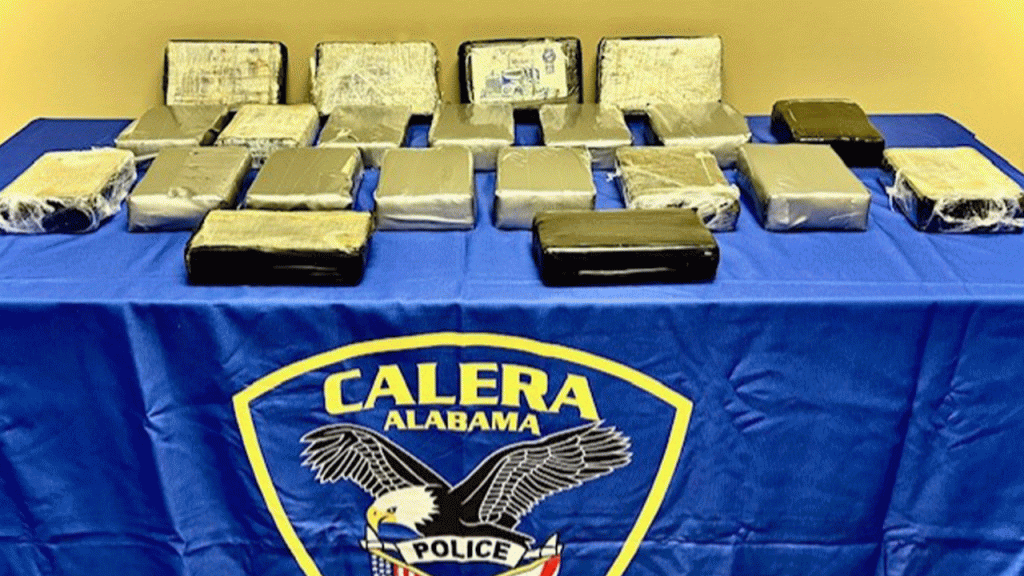A Routine Traffic Stop Leads to a Major Cocaine Bust
In a small town in Alabama, a seemingly routine traffic stop has resulted in a significant drug bust. Calera Police Chief David Hyche reported that a patrol officer stopped a vehicle last week for not having a valid tag. The officer, following standard procedure, conducted the stop, which quickly escalated due to the discovery of "probable cause for a search." This simple traffic violation led to the discovery of 46 pounds of cocaine, a find that has sent ripples through the local and federal law enforcement communities.
Unveiling the Culprits
The driver and passenger, both men, were found to be from Colombia and were in the country illegally. These men were arrested and charged with cocaine trafficking. One of the men, already on the radar, was wanted in Atlanta for drug trafficking and failing to appear in court. Chief Hyche emphasized that the department did not initially know the identity or background of these individuals or the contents of their vehicle. "The choices these two men made led to this outcome," he stated, underscoring the critical role of law enforcement in upholding the law and ensuring public safety.
A Collaborative Effort
The Calera Police Department is now working closely with federal agencies, including Homeland Security Investigations (HSI), to pursue additional charges for both drug and immigration violations. The monetary value of the seized cocaine will be determined after HSI completes its examination. This collaboration highlights the importance of interagency cooperation in tackling complex crimes like drug trafficking. Chief Hyche explained that the suspects were believed to be traveling from California to Miami, taking an unconventional route to avoid areas known for drug interdiction. However, their attempt to evade law enforcement ultimately failed.
The Impact of Traffic Stops
Despite the growing debate over the practice of traffic stops for minor violations, Chief Hyche staunchly advocates for their continuation. He cited instances where such stops have resulted in the rescue of children in dangerous situations. "Many departments around the U.S. have ceased making stops for minor traffic violations. I have repeatedly spoken out against this and other instances where law enforcement leaders apologize for enforcing the law or change policy to appease critics," he stated. Hyche argues that law enforcement’s role is to enforce the laws, not to make them, and that weak and passive enforcement only encourages criminal activity.
The Border Issue
Reflecting on the broader context of drug trafficking, Chief Hyche compared the current state of drug availability to the early days of his career. He noted that drugs like cocaine and heroin are now cheap and easily accessible due to the lack of border control. "If we control the borders, the dope would be expensive," he said, emphasizing that the solution to the drug problem must start at the border. This perspective highlights the interconnectedness of immigration policy and the drug trade, suggesting that effective border control is a critical component of reducing drug availability and related crime.
Community Safety and Legal Repercussions
Shelby County District Attorney Matt Casey praised the Calera Police Department for their efforts in protecting the community. The two men are being held on a $10 million bond, reflecting the severity of their crimes. Chief Hyche believes this bust is the largest in Shelby County history, a testament to the department’s commitment to combatting illegal drug activity. The arrest and charges send a strong message to potential traffickers that even minor traffic violations can lead to significant legal consequences, reinforcing the importance of law enforcement’s role in maintaining public safety and order.












